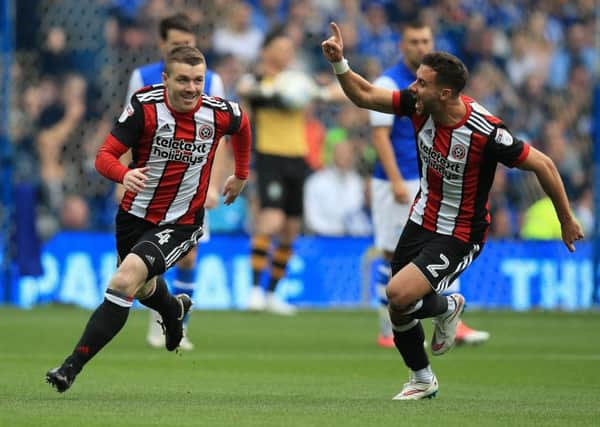Sheffield United Fan's Column: Did the derby win signal another shift in power?


Usually the point when one passed the other can be traced to a particular match, or even a day when there wasn’t a match.
Let’s start with October 3rd 1970, the day of the derby match at the Lane, with both teams having indifferent starts to the season. A crowd of 39,983 crammed into Bramall Lane for the match, which turned out to be a thriller, won 3-2 by United, who went on to win promotion, whilst Wednesday floated around the lower reaches of Division Two. This period of United’s ascendancy peaked in the 1974/75 season, when a Tony Currie-inspired Blades finished sixth, their second-highest position since the war, and Wednesday were relegated to Division Three for the first time in their history.
Advertisement
Hide AdAdvertisement
Hide AdUnited stayed on top until two relegations landed them in the same division as Wednesday for the 1979/80 season. We all know what happened that Boxing Day, which launched Wednesday to promotion and United to relegation the following season. The tide had turned again. By 1989 United were back in Division Two, but Wednesday were in Division One. Cue May 5th 1990, one of those rare days when everything went right for us and wrong for them. United won 5-2 at Leicester to clinch promotion, but Wednesday slumped at home to Forest and went down. The Green ‘Un headline that night famously read “BLADES GLORY, OWLS DOWN”.
United’s ascendancy didn’t last long. Wednesday came straight back up and for the next three seasons challenged near the top as United fought to stave off the drop. United’s goal in the 1992/93 1-1 draw at Hillsborough came from Brian Deane, his last United goal. The following summer he was sold – thanks to Reg Brealey – bringing about the next ‘Day of Change’, July 12th 1993. Despite the almost surreal series of results that sent United down on the last day on the 1993/94 season, United’s relegation had been coming.
Wednesday’s relegation six years later brought the two together again. For a couple of seasons neither did a lot; the 2002/03 season was to see the next shift. It began with United’s 3-1 win in January 2003, but the pendulum swung completely United’s way on Easter Monday when United beat Leicester and Wednesday lost at Brighton and went down. “BLADES MAKE PLAY-OFFS - OWLS DOWN” said The Star billboards. I have one of these on my wall at home!
Derby matches were resumed in 2005/06: United won both. There was no doubt which was the superior team now as United chased Reading into the Premier League. United’s immediate relegation brought the clubs level again. After two seasons in which United’s ascendancy was slight, Wednesday’s relegation in 2009/10 put a division between the teams again. That was until United followed them a year later.
Advertisement
Hide AdAdvertisement
Hide AdBack on level terms for the 2011/12 season, United and Wednesday competed with Charlton Athletic for the three promotion places. Charlton stretched away at the top – then it happened,
April 20th 2012. Ched Evans was sent to prison. United were four points in front with three to play, but without Ched got only two draws, whereas Wednesday won all three. United’s play-off final defeat was inevitable.
It has taken five years for United to achieve parity. It’s still too early to say for sure, but September 24th might have been the beginning of the next change.